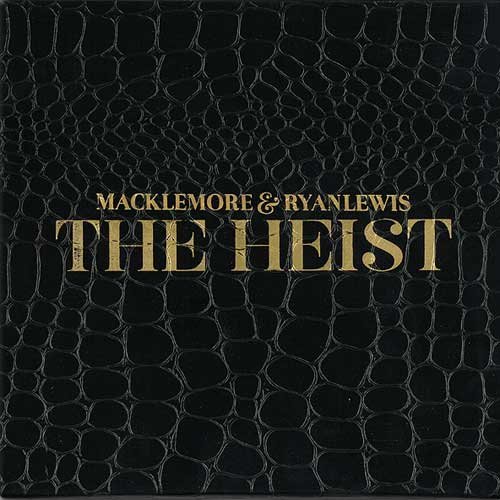
Ryan Lewis
The Heist
Release Date: Oct 9, 2012
Genre(s): Rap
Record label: ADA
Music Critic Score
How the Music Critic Score works
Buy The Heist from Amazon
Album Review: The Heist by Ryan Lewis
Exceptionally Good, Based on 5 Critics
Based on rating 5/5
The Heist is one of the year's big sleeper hits: an indie hip-hop album from a Seattle rapper, Macklemore, and beatmaker, Ryan Lewis, that debuted at Number Two on the Billboard 200. The record has its charms (the single "Thrift Shop," a cheeky ode to second-hand duds) and its virtues (the marriage-equality anthem "Same Love"). Unfortunately, Macklemore's virtuousness overwhelms his far more modest charms: whether name-dropping Malcolm Gladwell and touting his work ethic or boasting about his indie bona fides, the dude's self-righteousness tests, and, eventually, exhausts, your patience.
Based on rating 8/10
When Macklemore declares his music is "David Bowie meets Kanye sh*t," it's a bit of an oversell on the Bowie side, but then again, Jean-Michel Basquiat and Keith Haring are also honored as influences during "Ten Thousand Hours," the biographical highlight that opens the Seattle rapper's vibrant sophomore release. These arty name-drops threaten to paint the album as more obscure than it is, but even as glitch electronica and Mad Rad member Buffalo Madonna strange up the breakup number "Thin Line," The Heist comes off as instant, alive, and oh so welcoming. Chalk it up to Macklemore's playful and open lyrics ("When I was in the third grade/I thought I was gay/Because I could draw, my uncle was, and I kept my room straight") or the album's not so secret weapon, Ryan Lewis, the producer who earns his co-billing with a George Martin or Dave Fridmann-sized sense of purpose and an Internet kid's sense of utilizing anything and/or everything.
Based on rating 4.0/5
Author Malcolm Gladwell laid out the theory in his book Outliers: The Story of Success that regardless of God-given talent, an individual who strives for an ideal proficiency in their respective craft must first spend at least ten years honing their skills. Better known as the “10,000-Hour Rule” it can be applied to any industry – whether it is science, sports or the arts. Fittingly, it’s also a theory that Seattle rapper Macklemore stands by, as evidenced by his climb from earlier years of artistic stagnation and personal struggles to an underground sensation that has built his own success without the assistance of a record label.
Opinion: Excellent
Every rapper, no matter their background, has a unique story to tell. Yet, most choose to disclose little, if anything, that directly displays their individuality. Macklemore does the opposite. Sure, chunks of his story, within itself, deviate from what hip-hop is used to; the tale of a White kid from the Pacific Northwest who has battled addiction is new to the music in and of itself.
Opinion: Great
Flexing the same contextual muscle that helped make Atmosphere's Slug an MC for the downtrodden, Macklemore utilizes second album The Heist as a vehicle for dissection, pulling back the layers of skin that cover addiction ("Starting Over"), the music industry ("Jimmy Iovine"), materialism ("Thrift Shop"), and homosexuality ("Same Love"). It's the latter that earned such adoration this summer, when, backed by a slow piano melody that producer Ryan Lewis could have lifted from Atmosphere's sonic architect Ant, Macklemore stepped into the mind of a gay man to look at the way rap culture sees sexual diversity: "If I was gay, I'd think that hip-hop hates me/Have you read the YouTube comments lately? 'Man, that's gay' gets dropped on the daily/We become so numb to what we're saying. " Rap's issues extend far beyond money and street violence, something this Seattle wordsmith understands.
'The Heist'
is available now

